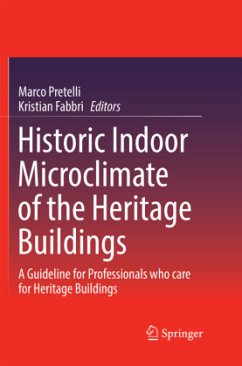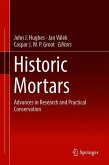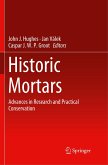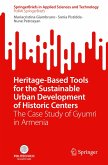Offering readers essential insights into the relationship between ancient buildings, their original and current indoor microclimates, this book details how the (generally) virtuous relationship between buildings and their typical microclimate changed due to the introduction of new heating, ventilation, and air conditioning (HVAC) systems in historic buildings.
The new approach to the study of their Historic Indoor Microclimate (HIM) put forward in this book is an essential component to monitoring and evaluating building and artefact conservation. Highlighting the advantages of adopting an indoor microclimatic approach to the preservation of existing historic materials by studying the original conditions of the buildings, the book proposes a new methodology linking the preservation/restoration of the historic indoor microclimate with diachronic analysis for the optimal preservation of historic buildings. Further, it discusses a number of frequently overlooked topics, such as the simple and well-coordinated opening and closing of windows (an example extracted from a real case study).
In turn, the authors elaborate the concept of an Historic Indoor Microclimate (HIM) based on "Original Indoor Microclimate" (OIM), which proves useful in identifying the optimal conditions for preserving the materials that make up historic buildings.
The book's main goal is to draw attention to the advantages of an indoor microclimatic approach to the preservation of existing historic materials/manufacture, by studying the original conditions of the buildings. The introduction of new systems in historic buildings not only has a direct traumatic effect on the actual building and its components, but also radically changes one of its vital immaterial elements: the Indoor Microclimate.
Architects, restorers and engineers will find that the book addresses the monitoring of the indoor microclimate in selected historic buildings that have managed to retain their original state due to the absence of new HVAC systems, and reflects on the advantages of a renewed attention to these aspects.
The new approach to the study of their Historic Indoor Microclimate (HIM) put forward in this book is an essential component to monitoring and evaluating building and artefact conservation. Highlighting the advantages of adopting an indoor microclimatic approach to the preservation of existing historic materials by studying the original conditions of the buildings, the book proposes a new methodology linking the preservation/restoration of the historic indoor microclimate with diachronic analysis for the optimal preservation of historic buildings. Further, it discusses a number of frequently overlooked topics, such as the simple and well-coordinated opening and closing of windows (an example extracted from a real case study).
In turn, the authors elaborate the concept of an Historic Indoor Microclimate (HIM) based on "Original Indoor Microclimate" (OIM), which proves useful in identifying the optimal conditions for preserving the materials that make up historic buildings.
The book's main goal is to draw attention to the advantages of an indoor microclimatic approach to the preservation of existing historic materials/manufacture, by studying the original conditions of the buildings. The introduction of new systems in historic buildings not only has a direct traumatic effect on the actual building and its components, but also radically changes one of its vital immaterial elements: the Indoor Microclimate.
Architects, restorers and engineers will find that the book addresses the monitoring of the indoor microclimate in selected historic buildings that have managed to retain their original state due to the absence of new HVAC systems, and reflects on the advantages of a renewed attention to these aspects.








